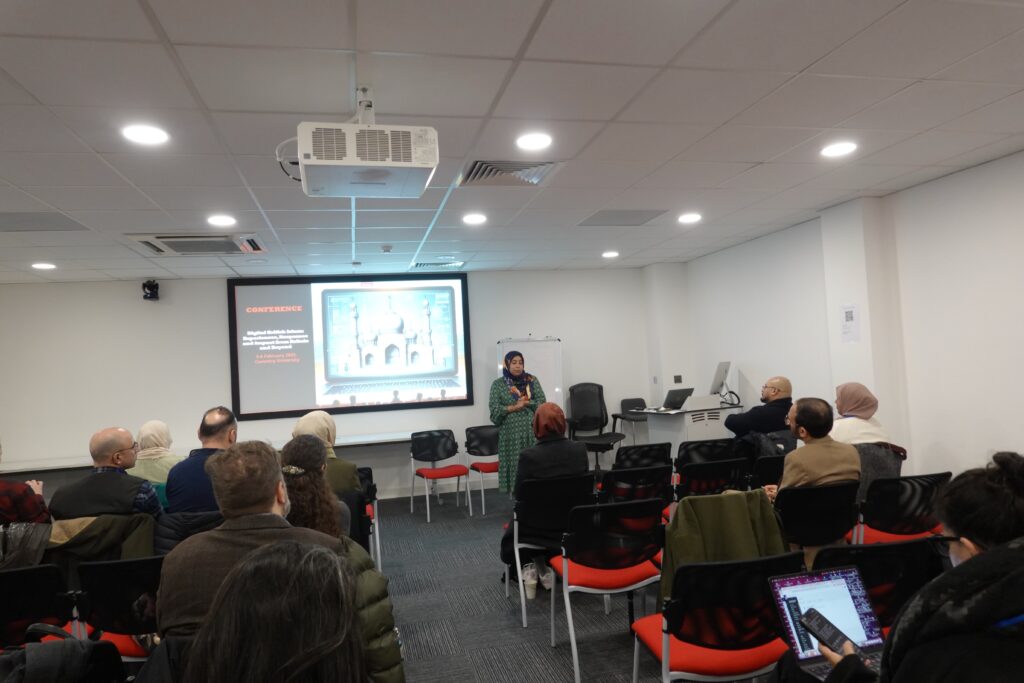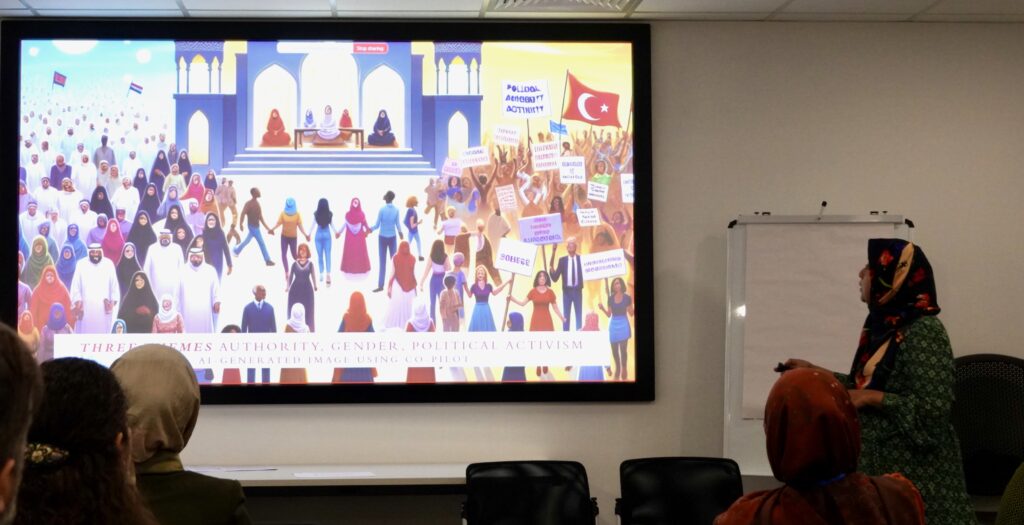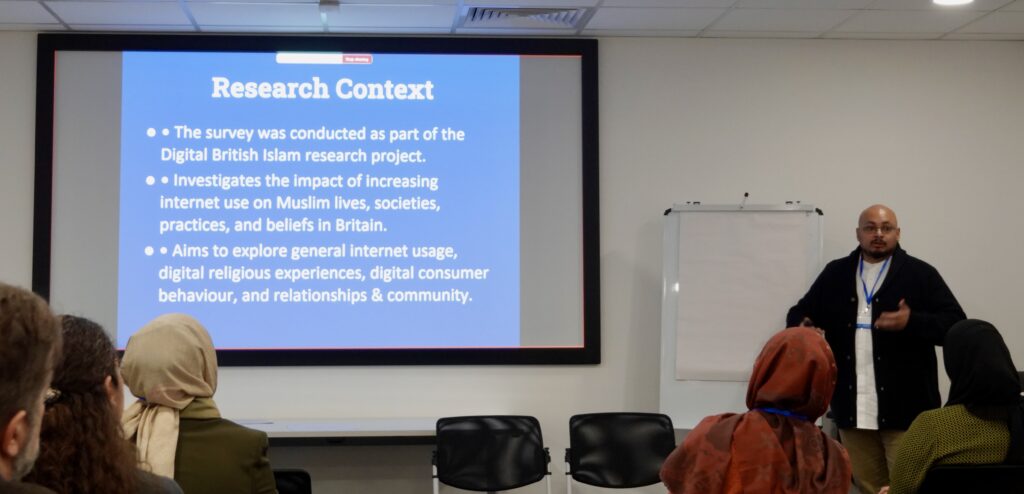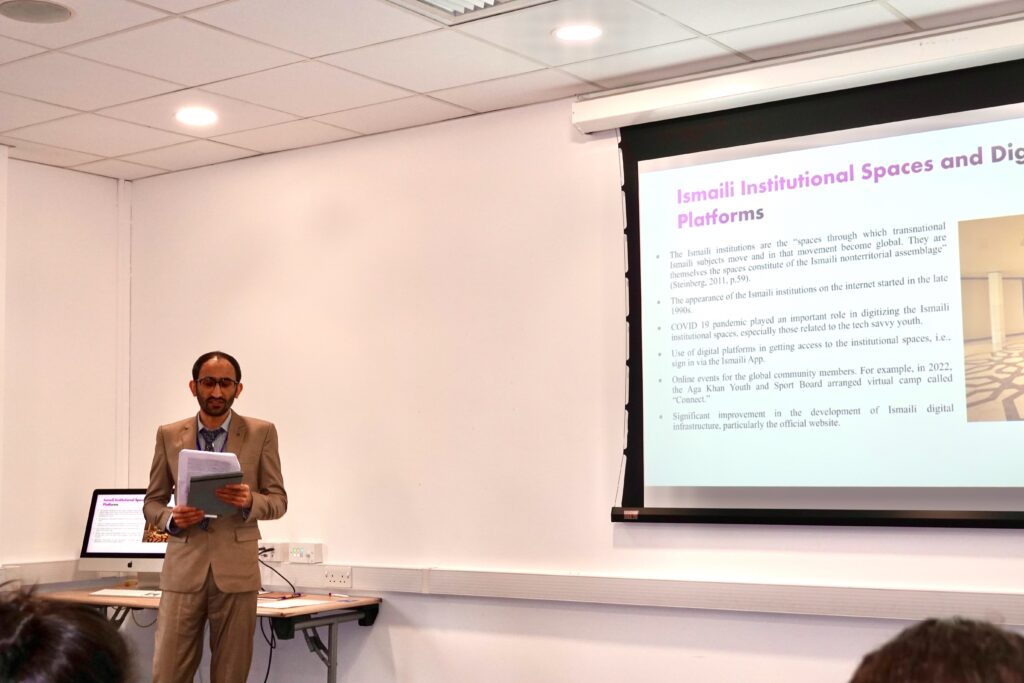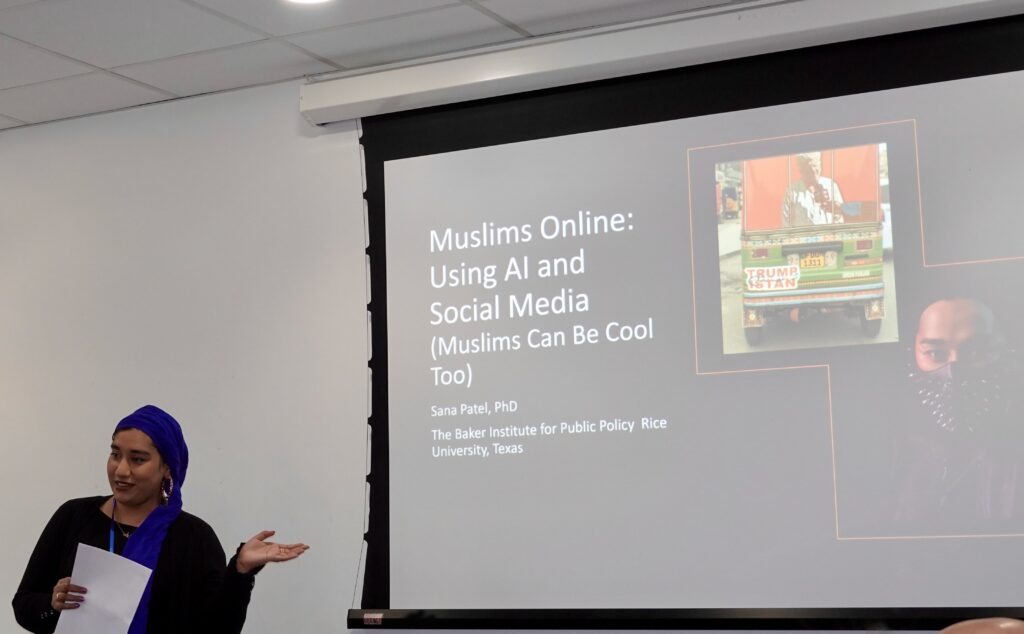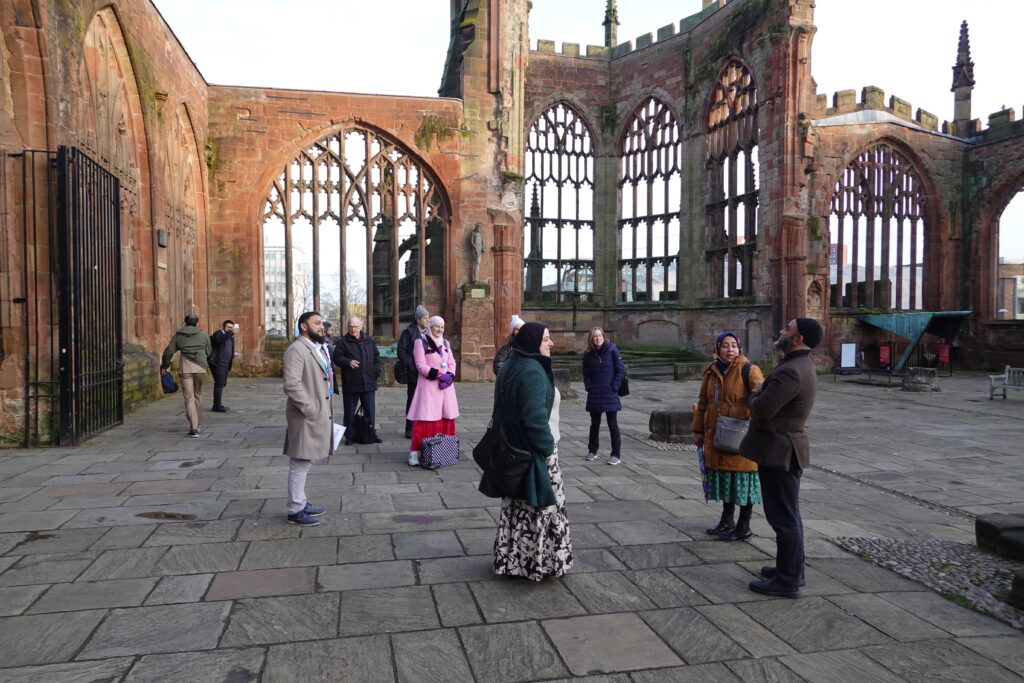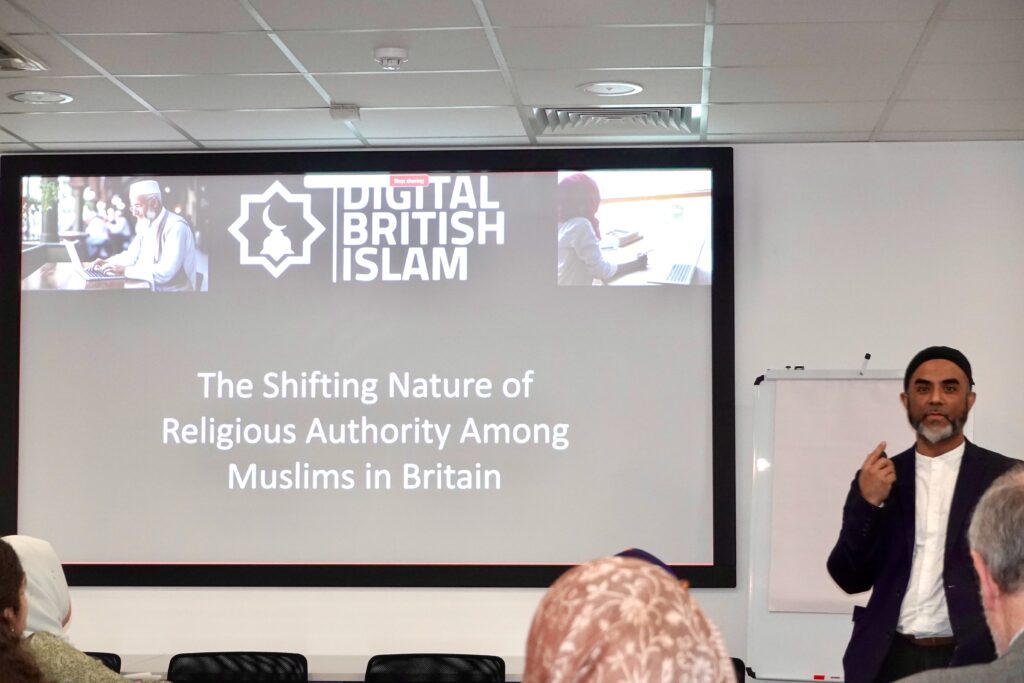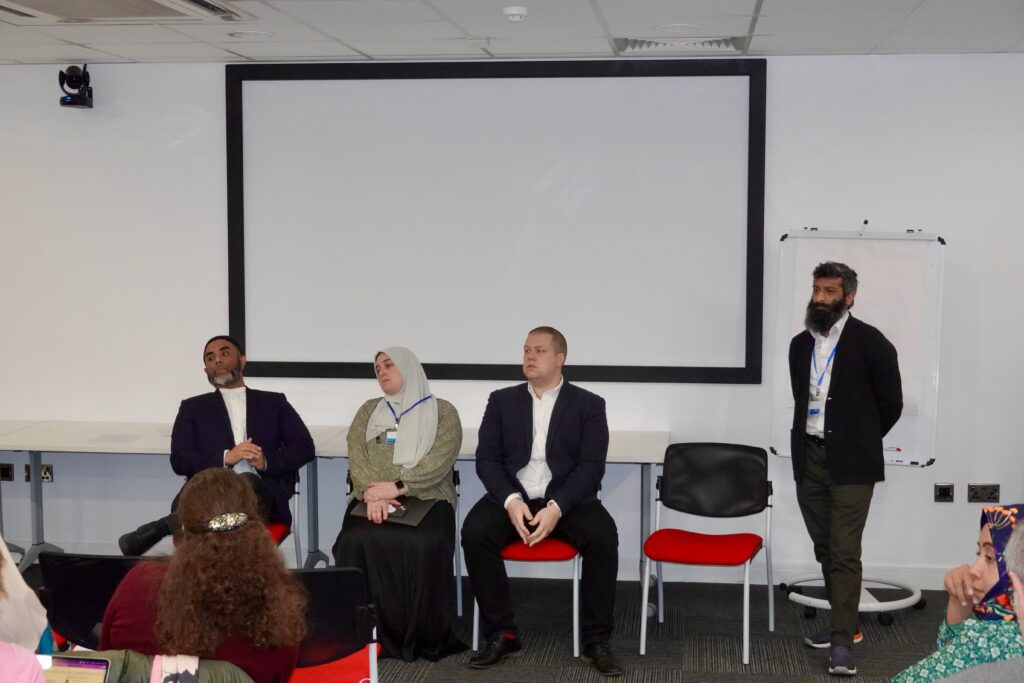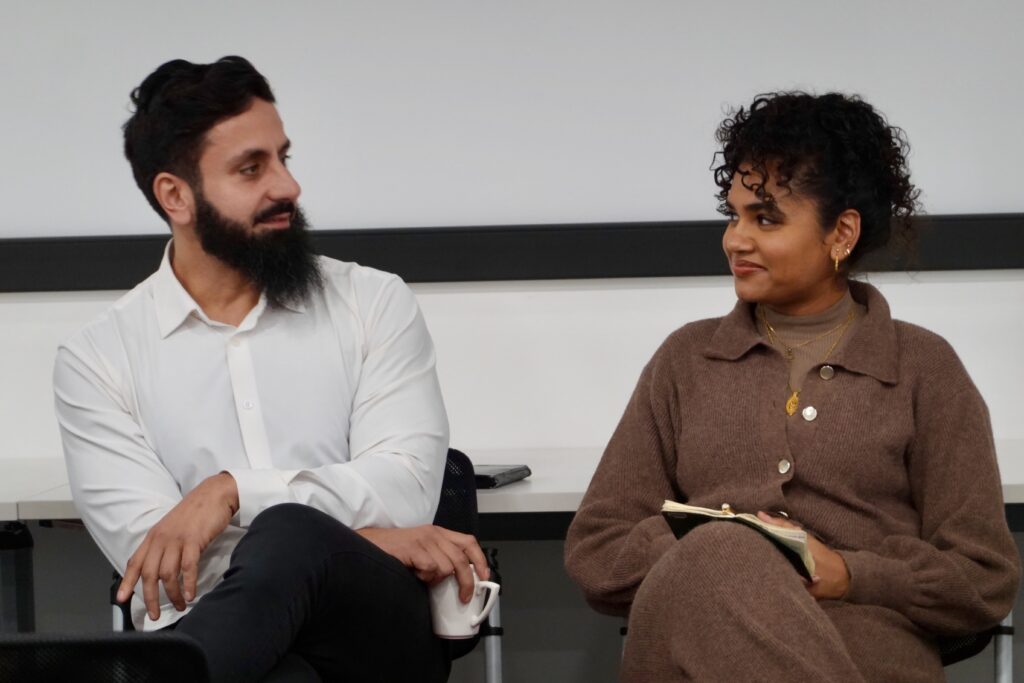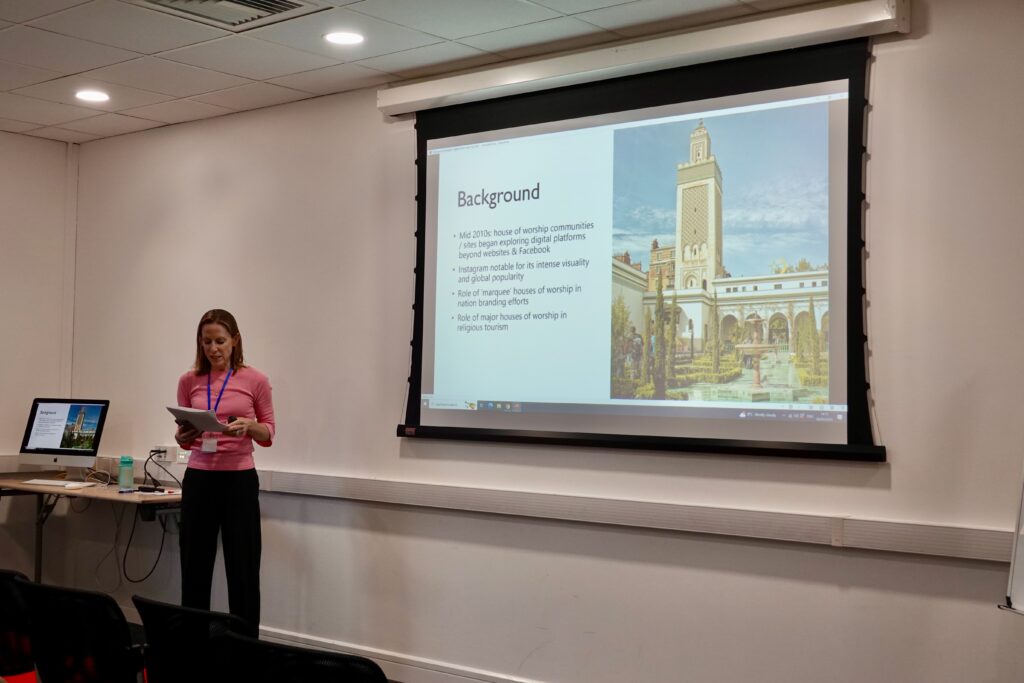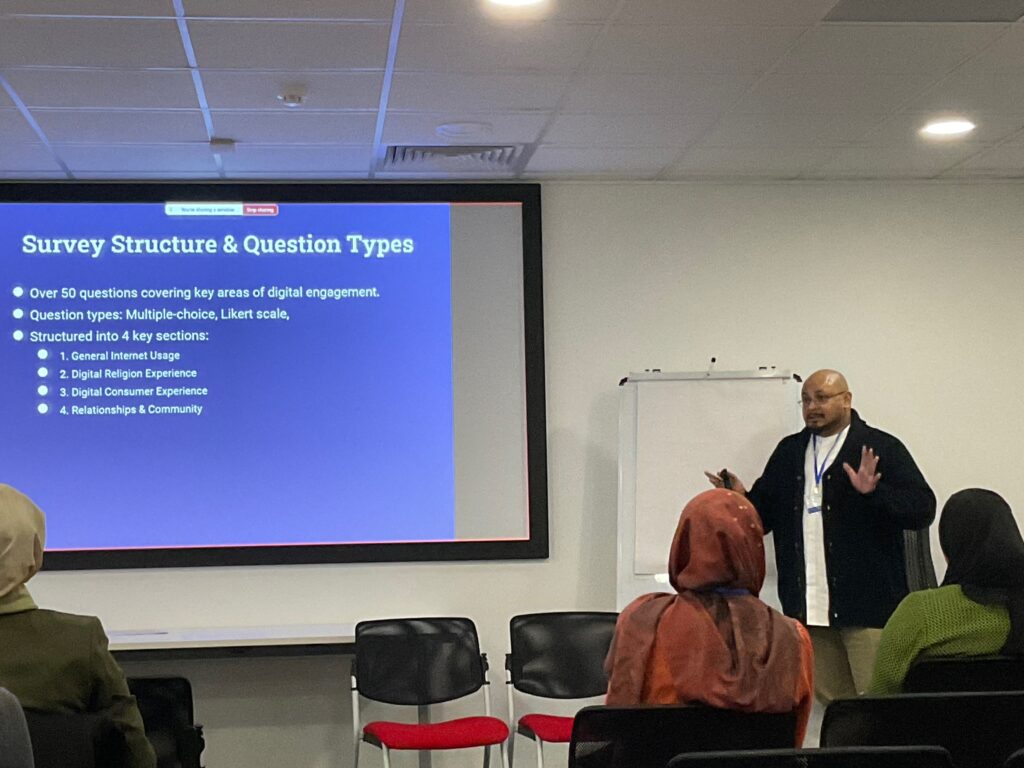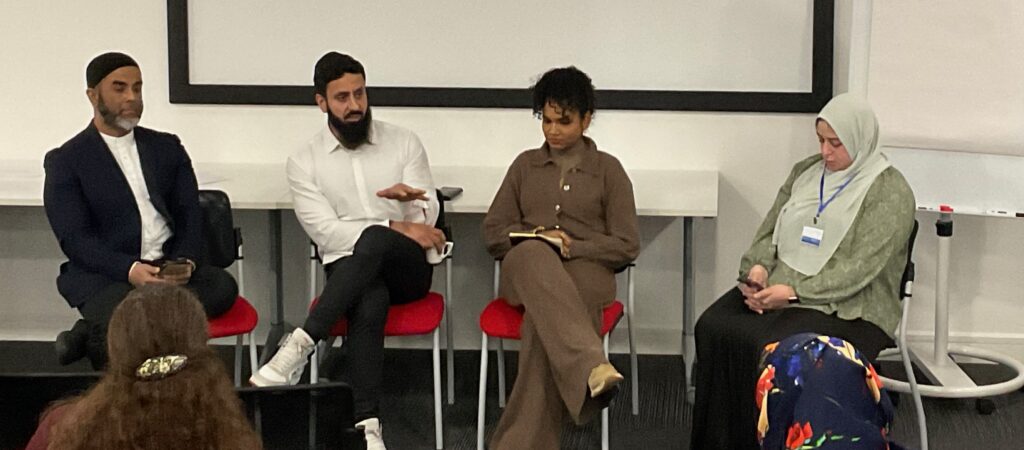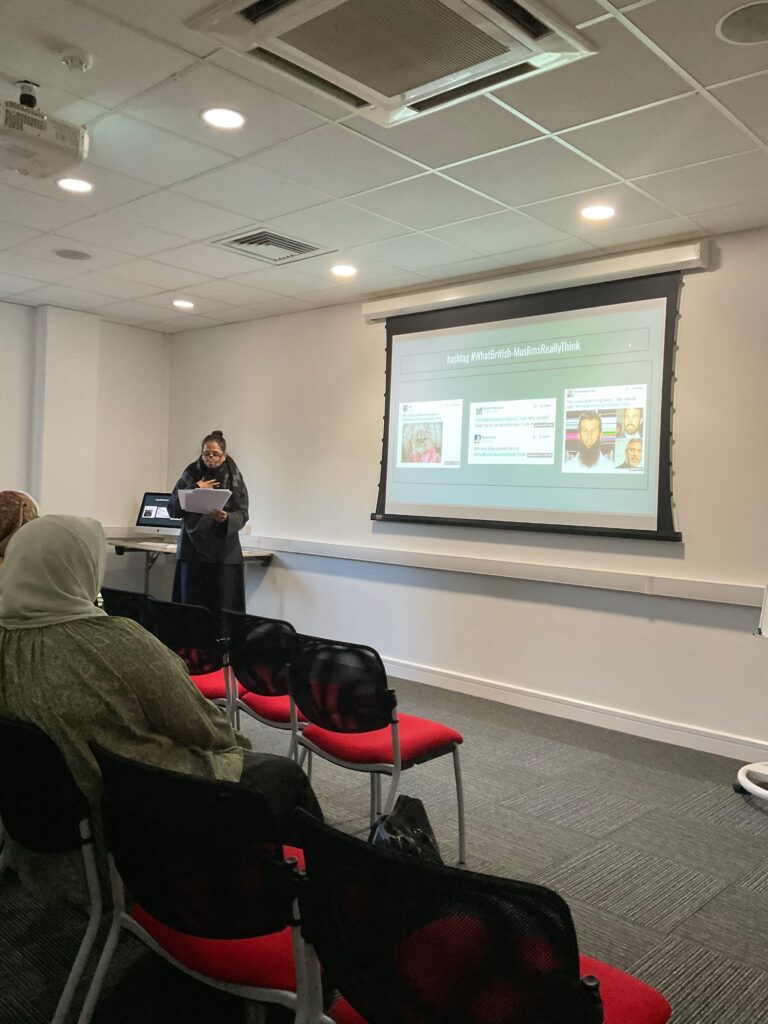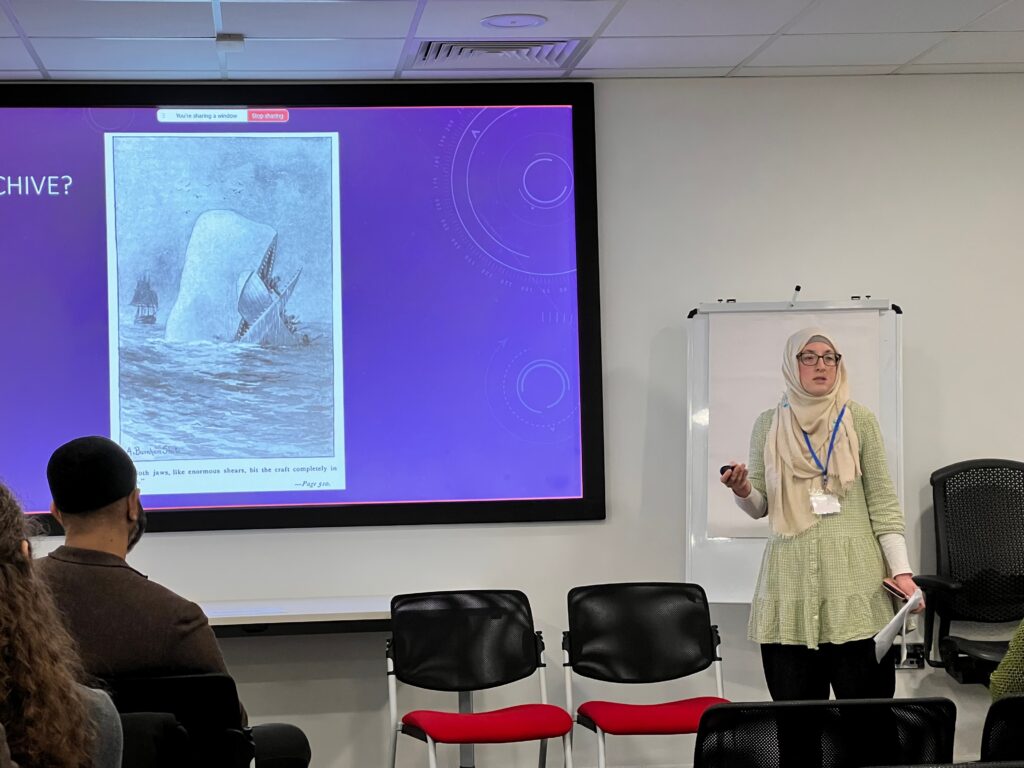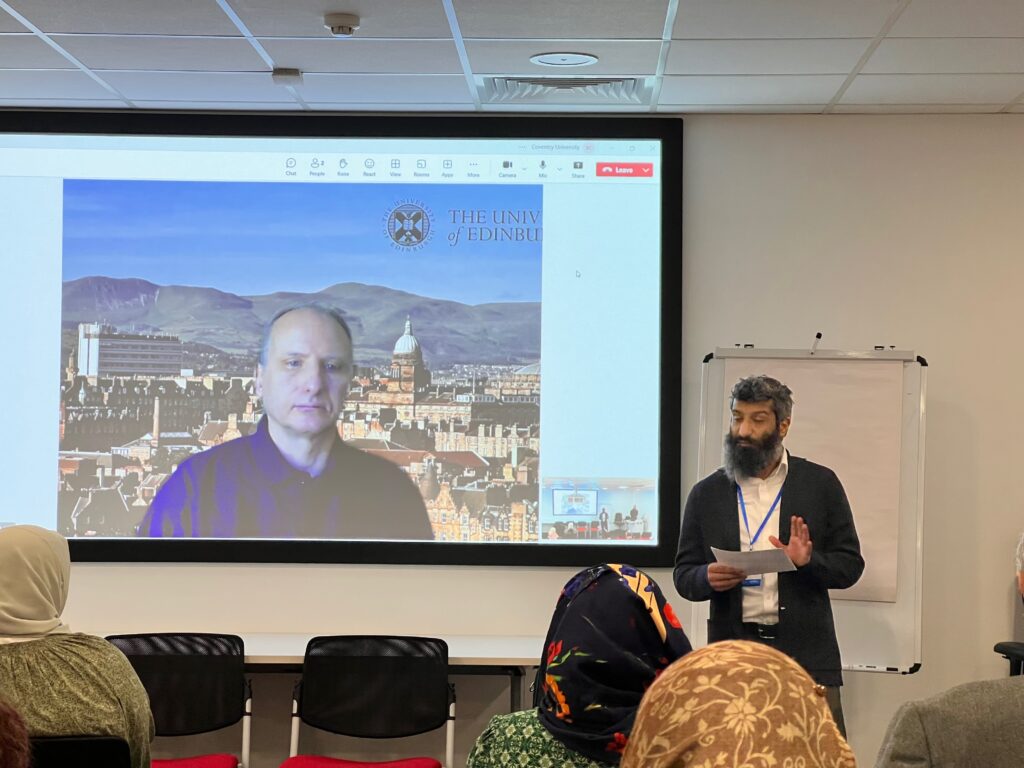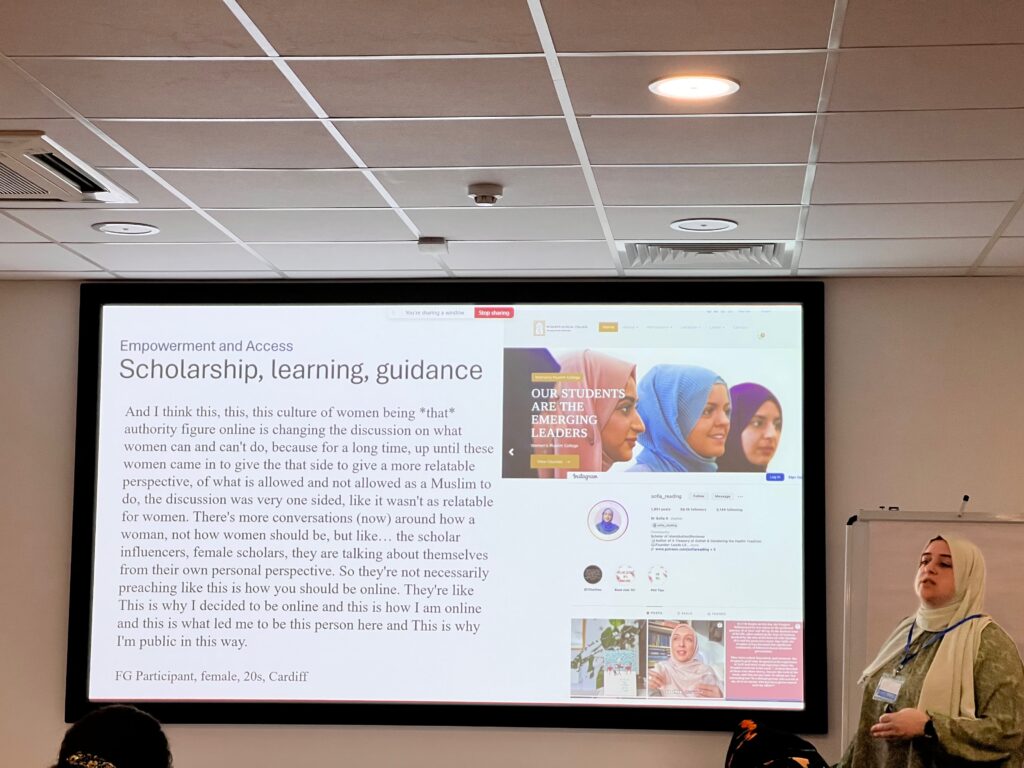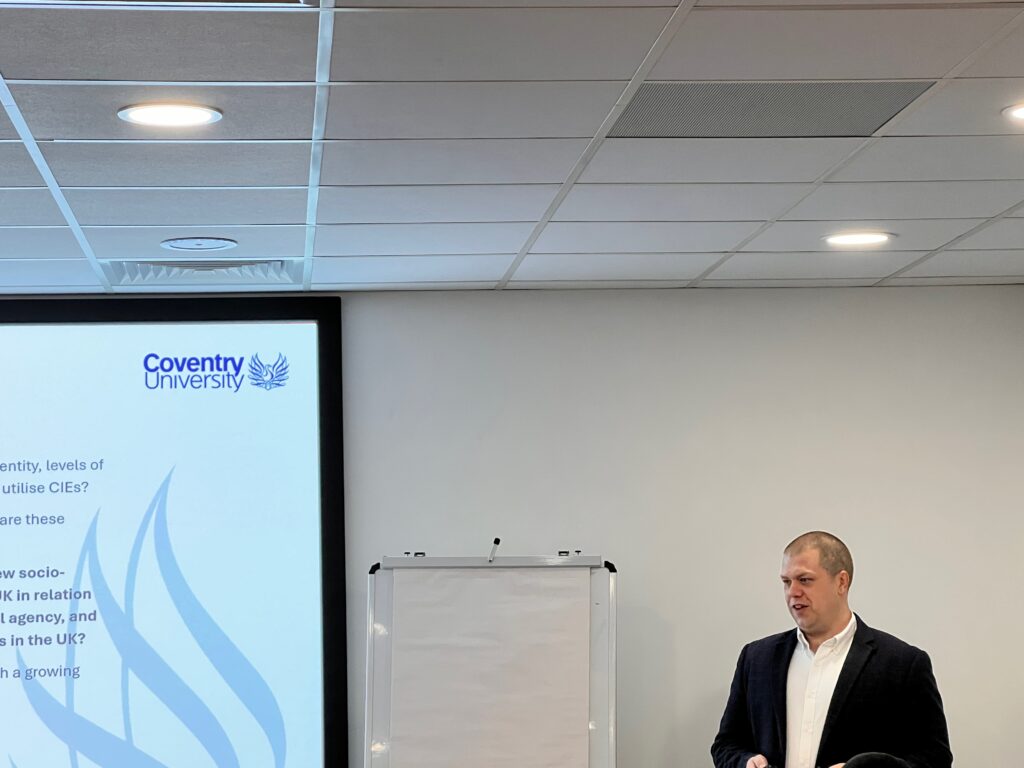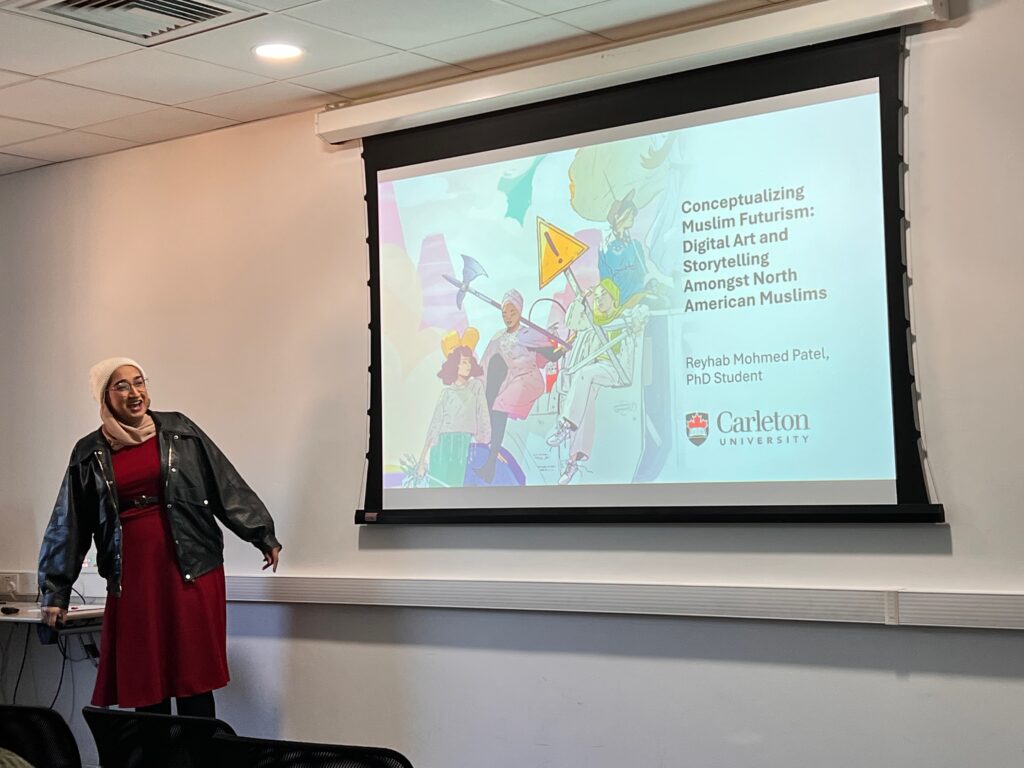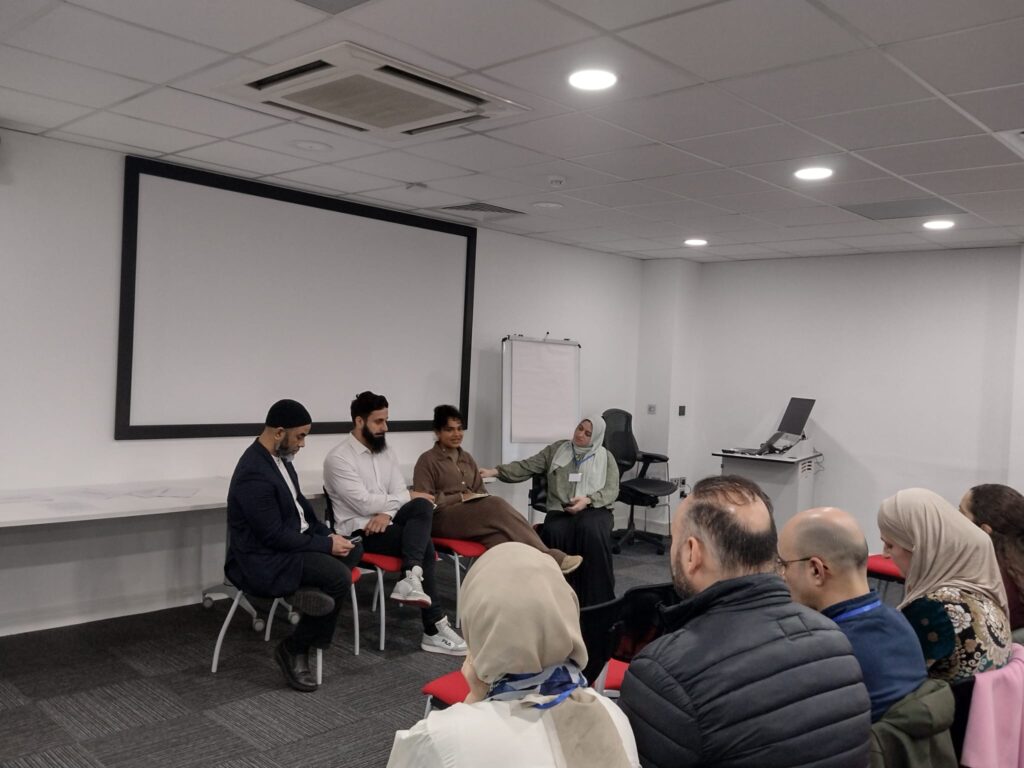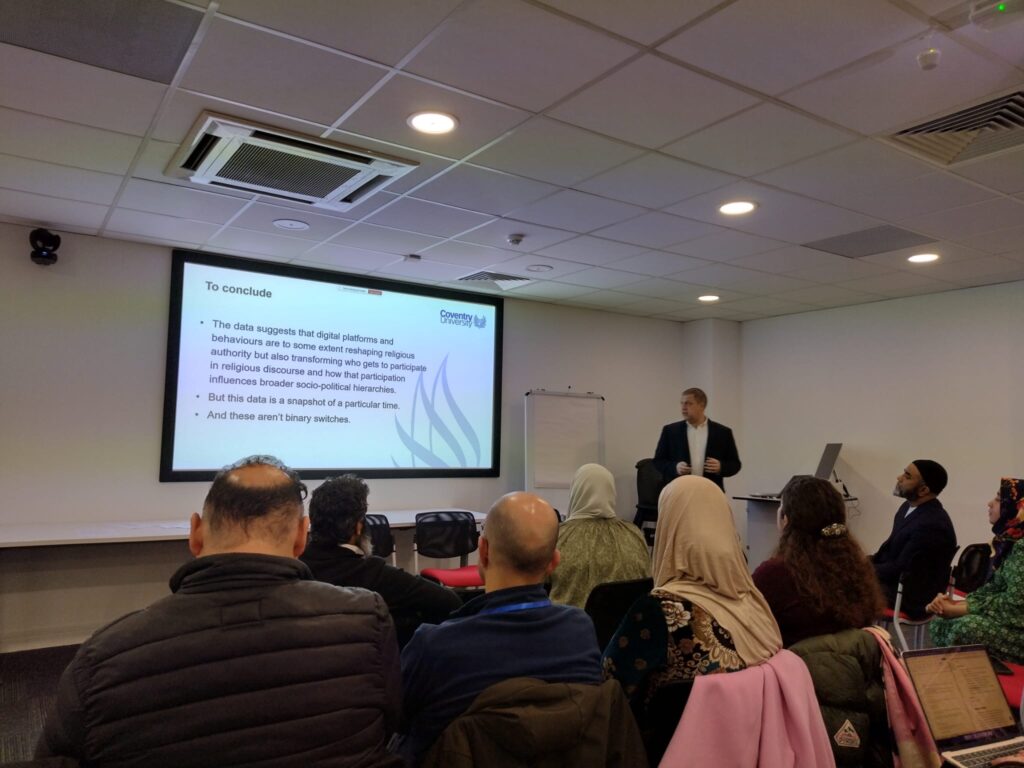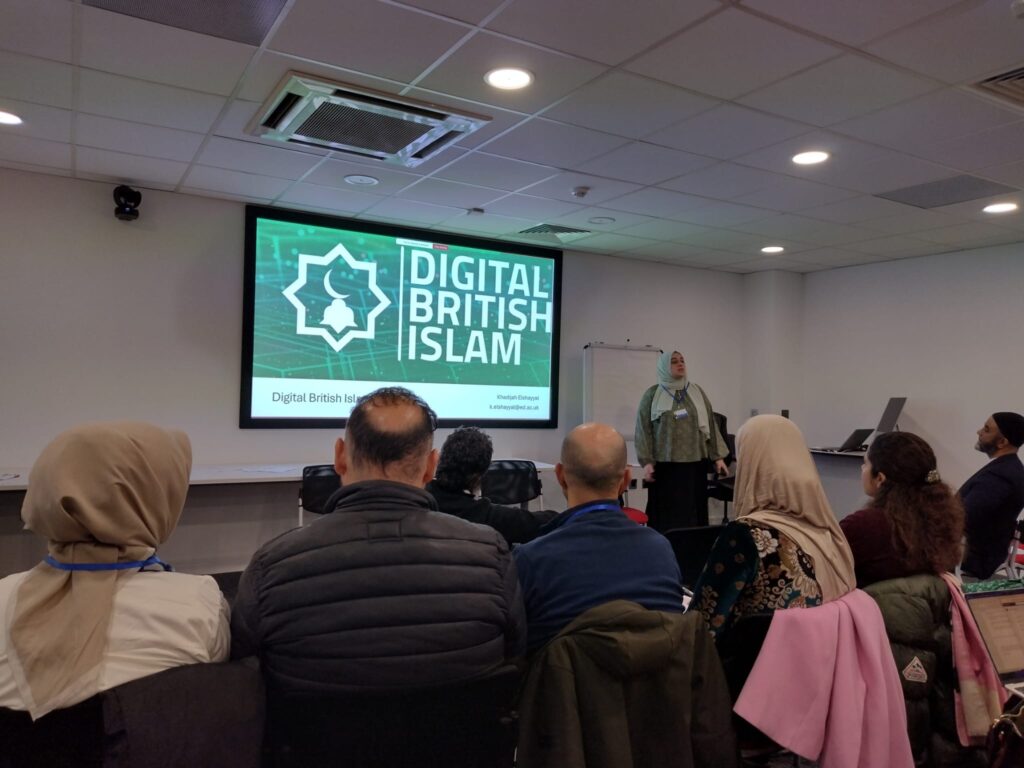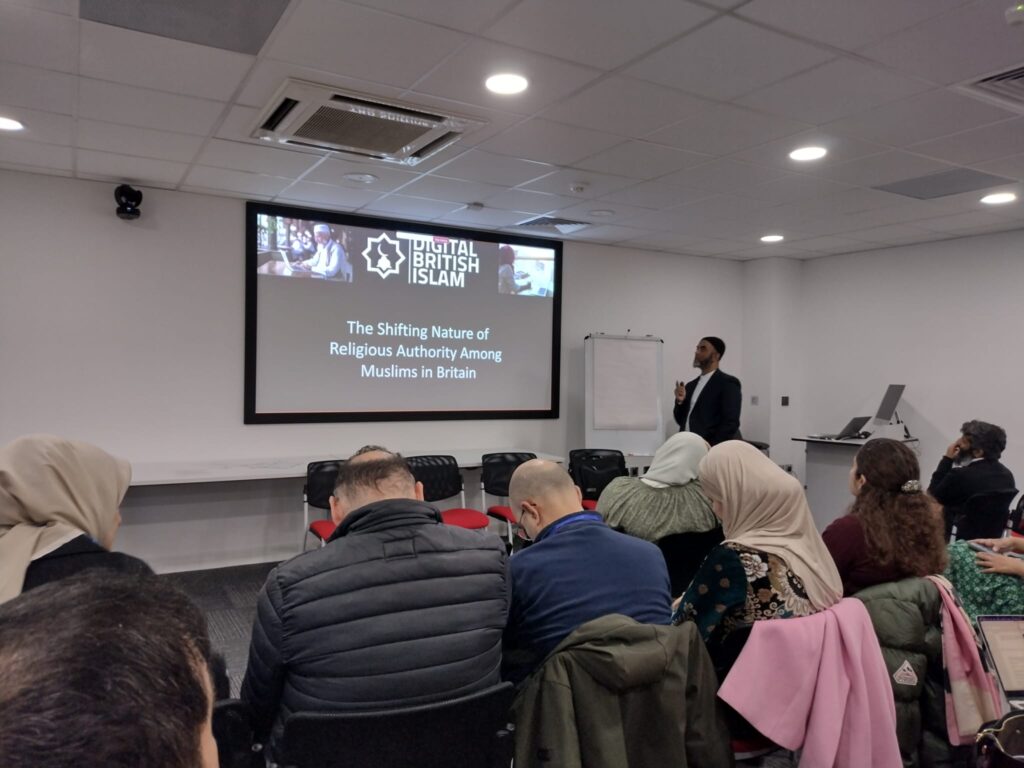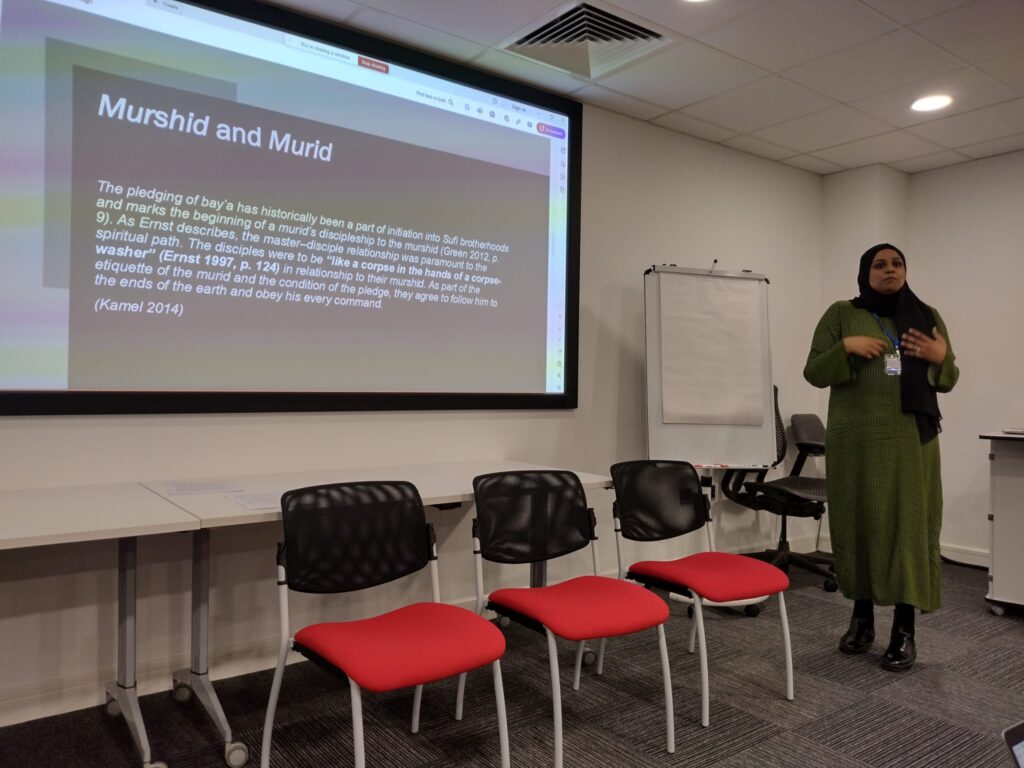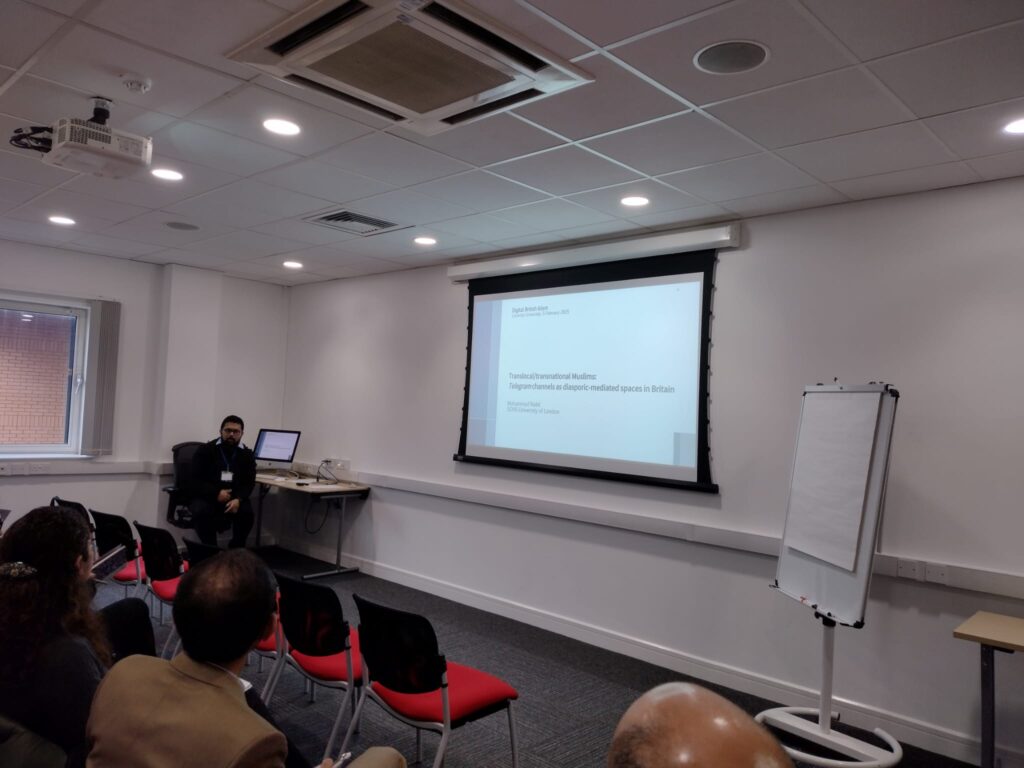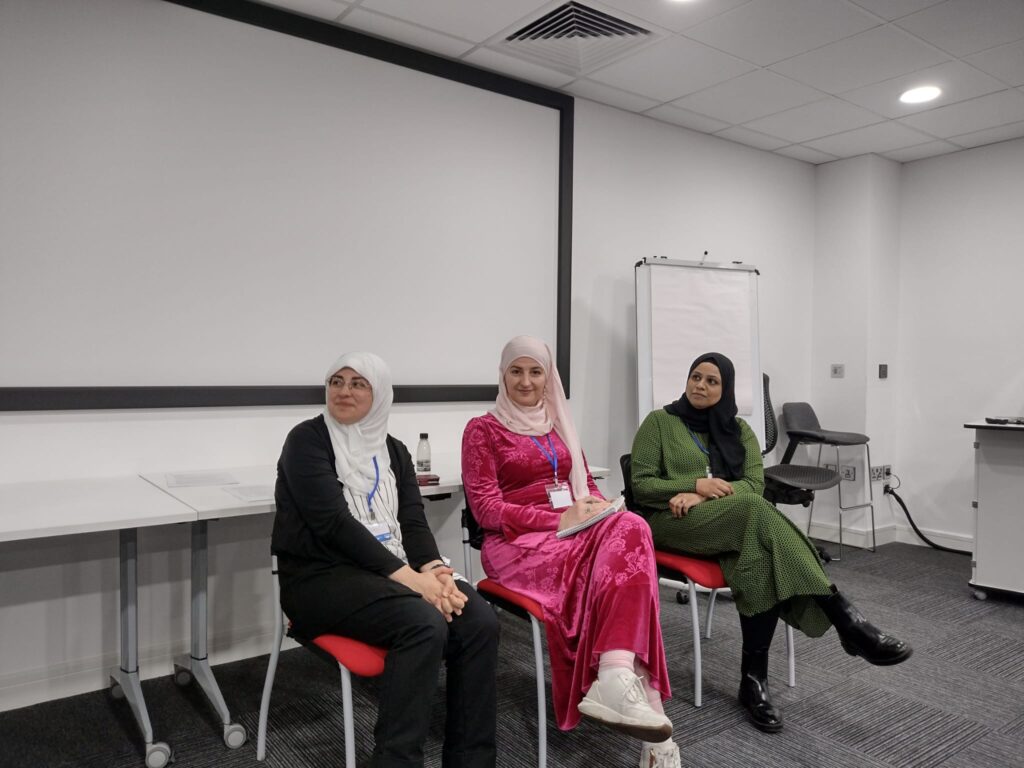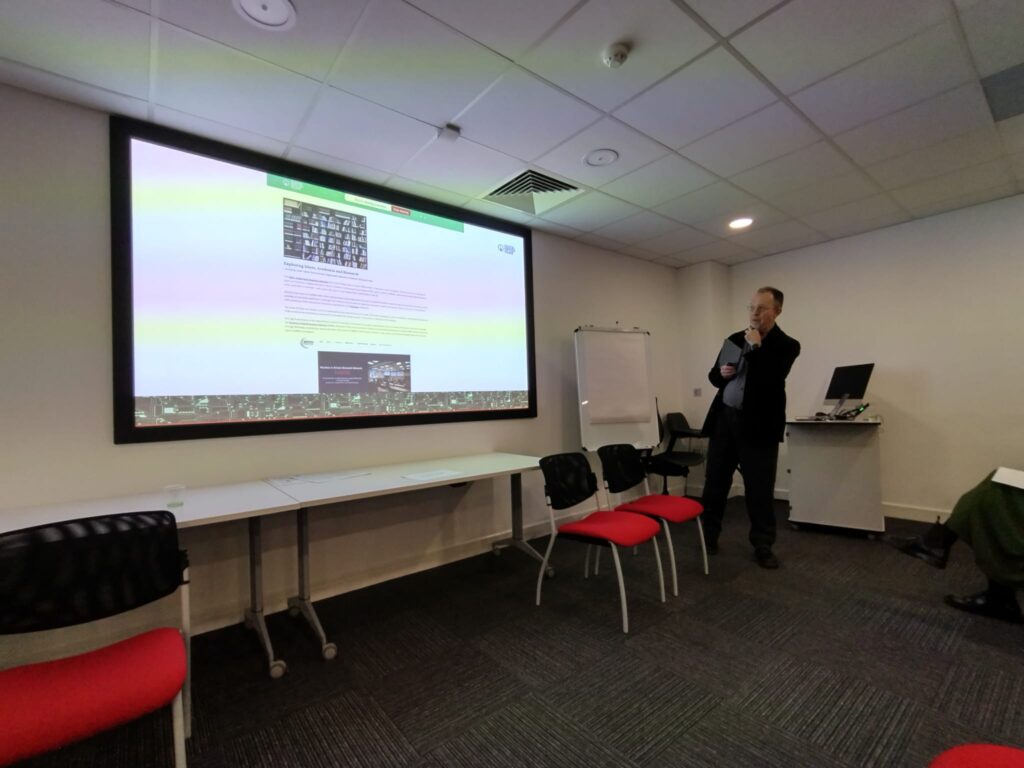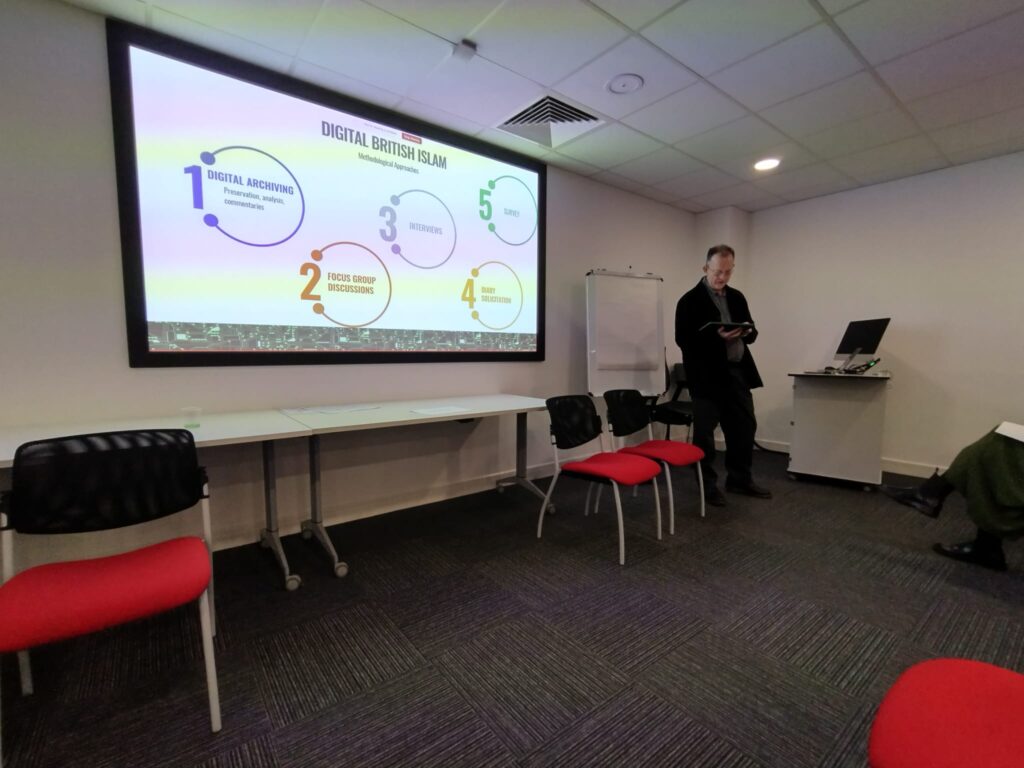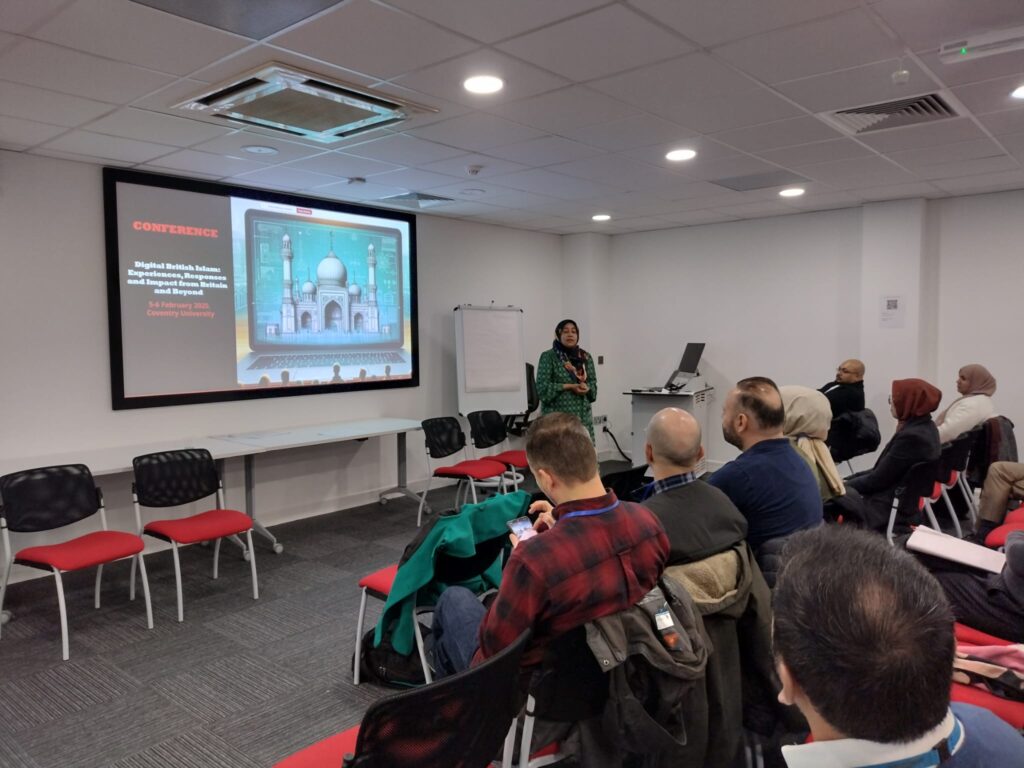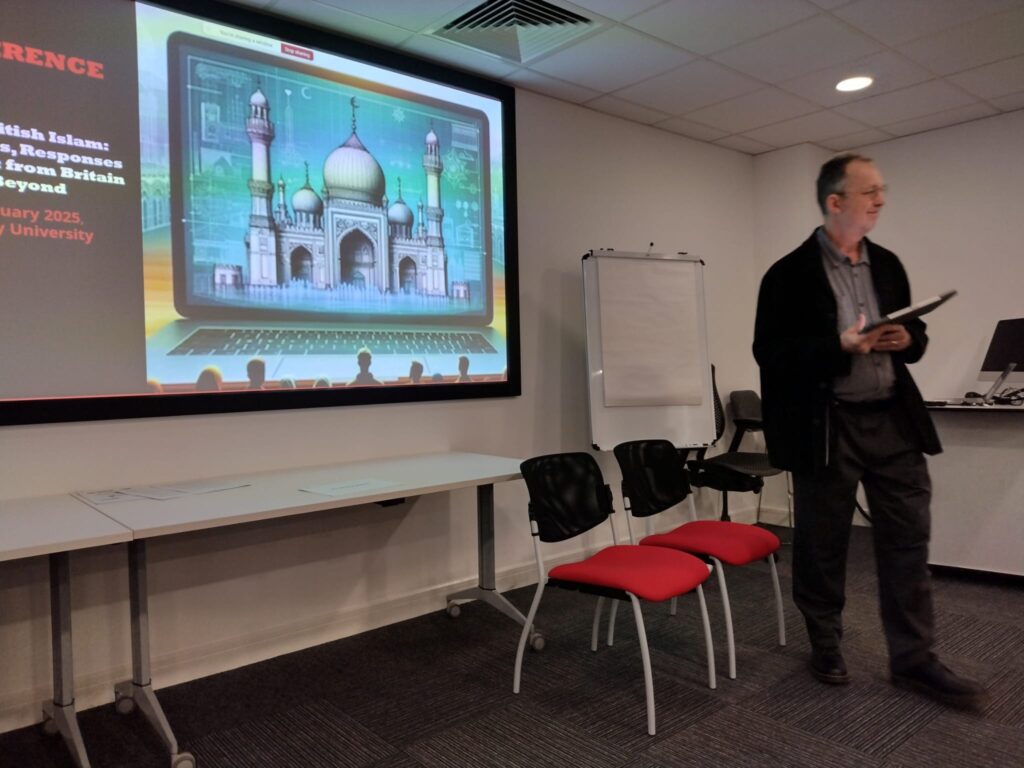On 5th and 6th February 2025, the ESRC-funded Digital British Islam project was pleased to welcome academics and practitioners from across the globe (including the UK, North America and Europe) to our conference Digital British Islam: Experiences, Responses and Impact from Britain and Beyond. Over 40 delegates attended the two-day event including postgraduate and early-career researchers, senior academics and members of Muslim groups and organisations.
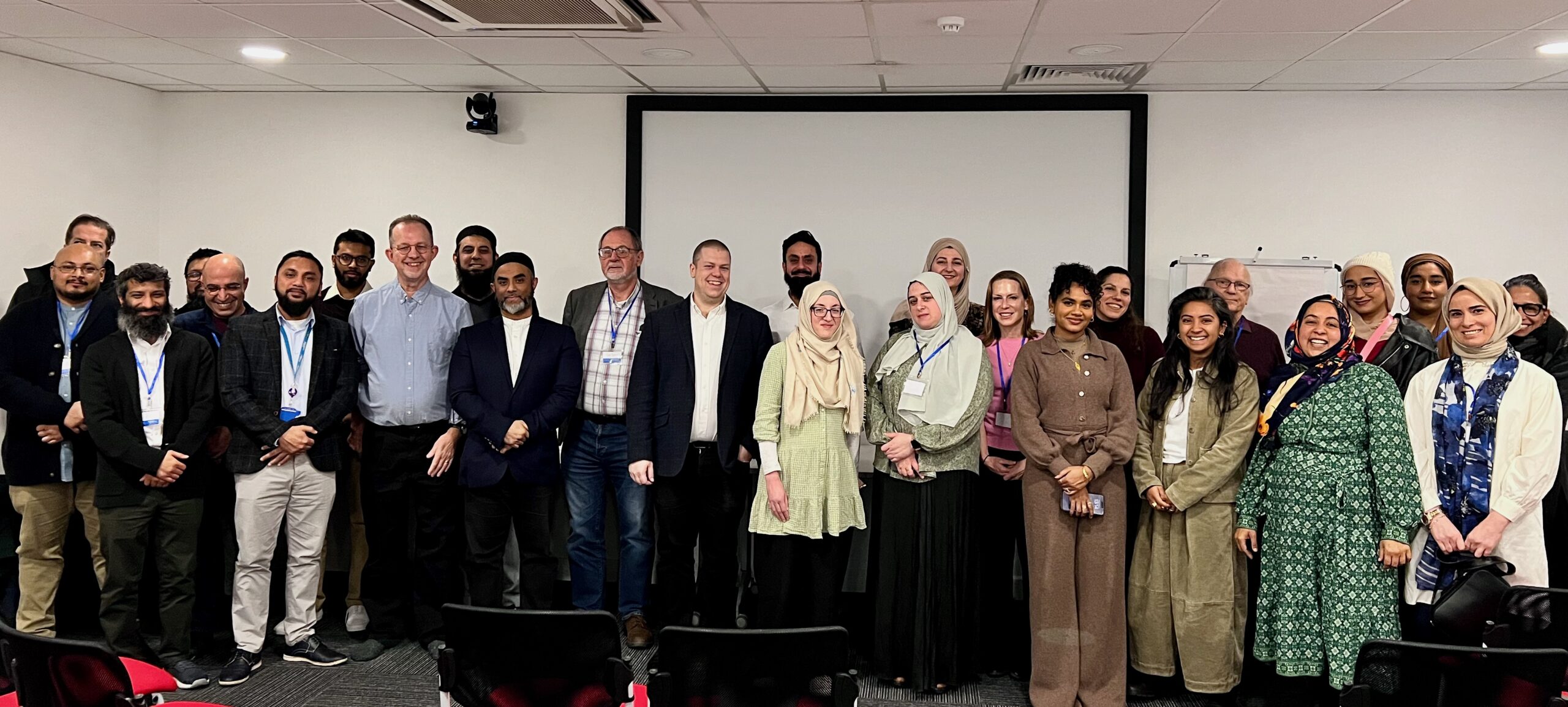
The conference included two plenary sessions from the Digital British Islam team. The first of these provided an overview of the project (Prof Gary R. Bunt) which is a collaboration of three universities: University of Wales Trinity Saint David, Coventry University and University of Edinburgh. This including its broad concepts and themes as well as introducing the mixed methods approach – which includes surveys, diaries, digital archiving, interviews and focus groups. Prof Sariya Cheruvallil-Contractor went on to highlight the interdisciplinary nature of the project and the key project themes of religious authority, gender and political agency, as well as giving a brief insight into the interview data. Dr Alamgir Ahmed introduced and reflected on the project methods of diaries and surveys while Dr Laura Jones explored methodological challenges of digital archiving. The Digital British Islam archive was also presented as a tool for others to use.
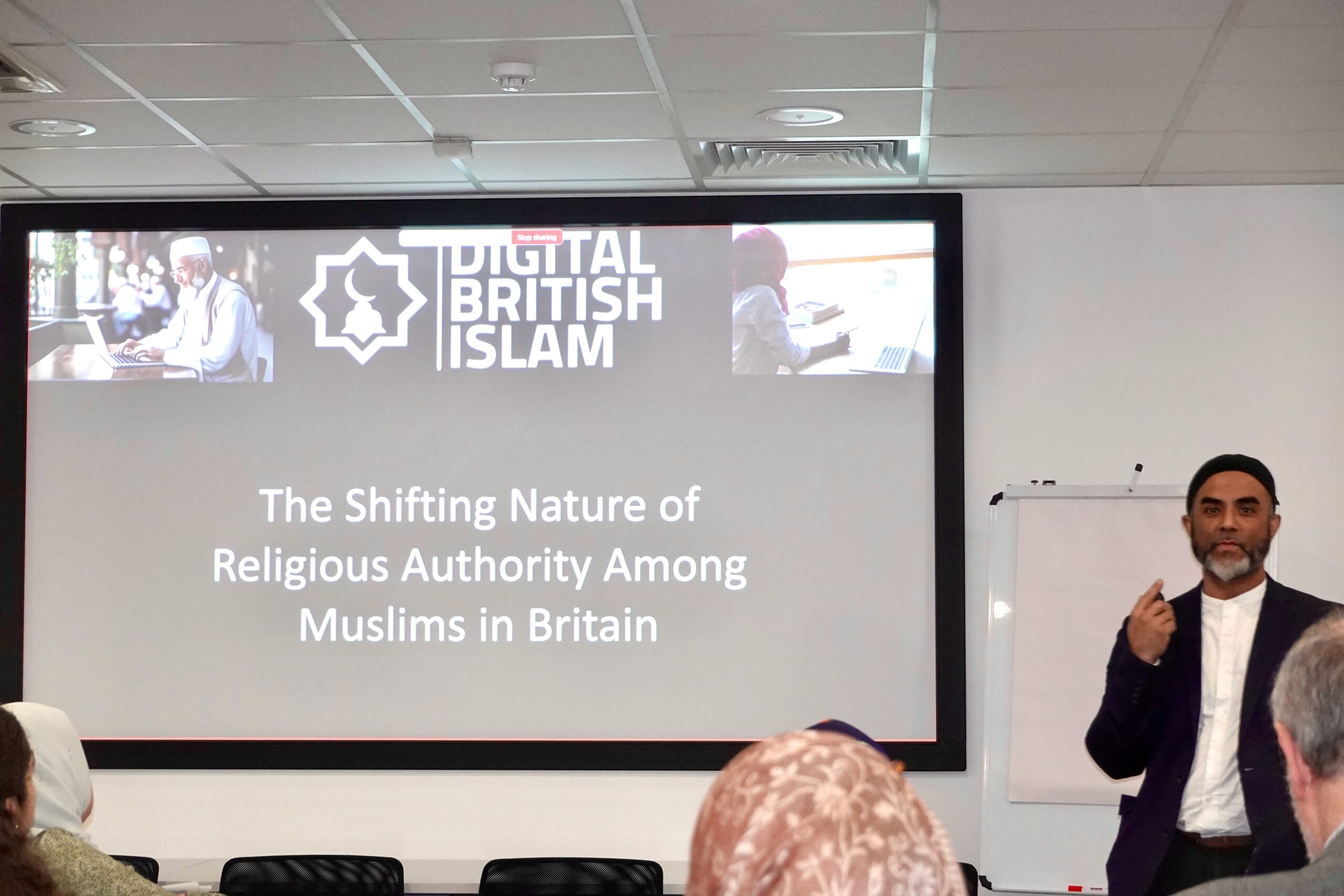
The second Digital British Islam plenary discussed project findings in relation to the three project themes. Prof Frederic Volpi started by exploring politics and described the way in which the online platforms of professional political figures are seemingly less engaging than other Muslim-led platforms. As such, platforms which are less overtly political but nonetheless provide ‘incidental’ political input may be more impactful than the platforms of professional political figures. Dr Khadijah Elshayyal described the way in which the digital realm provides a space of emancipation for Muslim women to express themselves while also facing the challenge of an increasing discourse that seems to suppress women’s rights. Dr Sadek Hamid highlighted the growing role of online ‘influencers’ in providing religious guidance – these individuals do not necessarily have traditional religious training but digital spaces give them a platform to share their views on religious matters. Dr Dan Range complemented these insights with survey data to highlight how British Muslims draw upon both traditional authority figures and online sources of authority. He also described how Muslim women feel more empowered to speak openly online and that many Muslims engage in political activism digitally before taking part in ‘real-world’ activism.
The conference also hosted two individuals with prominent roles in British Muslim online spaces – Hamza Tzortzis and Nafisa Bakkar (Amaliah) – in an interview-style discussion around digital influence. The session explored the ethics of online platforms, gender issues, and the monetisation of digital spaces and was chaired by Dr Khadijah Elshayyal and Dr Sadek Hamid.
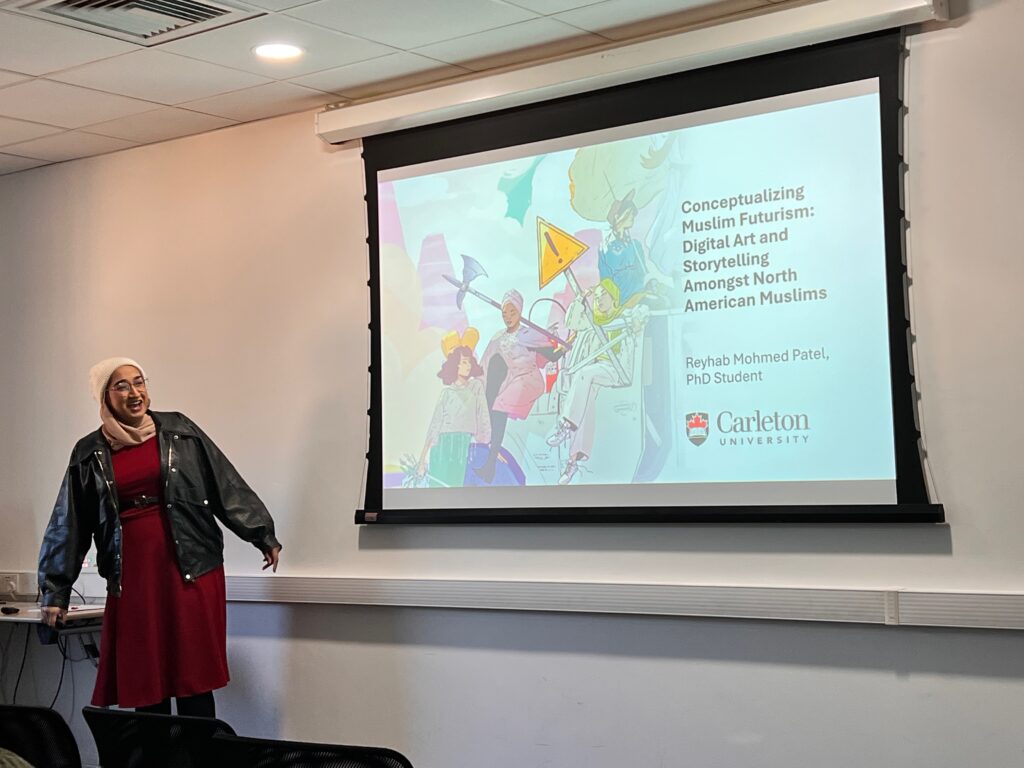
The panel presentations, by UK and international academics, explored various aspects of digital Islam including gender, art and aesthetics, religious authority, identity and the online/offline divide. Speakers presented a range of disciplinary and methodological perspectives from Hafza Iqbal’s theological conceptualisation of Sufi murid-murshid relationships online to Muhammad Nabil’s content analysis of Telegram channels. Presentations also looked at the use of digital technology by particular groups including imams (Riyaz Timol), the Shia Ismaili community (Muhammad Salim) and Salafi preachers and their audiences (Iman Dawood). Presentations highlighted the breadth of work in this field from explorations of scholarly debates around finance and homeownership (Frank Peter) to analysis and production of digital art projects (Reyhab Patel).
The Digital British Islam team would like to thank all those that attended the conference for their fascinating presentations and insightful discussions throughout the two days. We gained some valuable feedback on our work and learnt from the work of others in this vibrant and diverse field. We will be holding several more research dissemination events over the coming months – including in Edinburgh, Cardiff and London – so please keep an eye on our website and social media for details of these.
You can see further images from the conference below.
